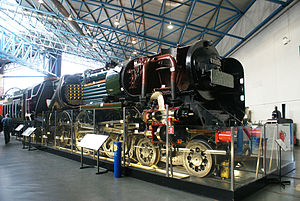
Although Sir John Ellerman was not technically an immigrant, his father immigrated to England from Hamburg in 1850 – shortly before John’s birth. He was the only son of Johann Hermann Ellermann, a German corn merchant and shipbroker who served as Hanover’s honorary consul in Hull. The Ellermann family quickly Anglicized their surname by dropping the second ‘n’, instead going by the name “Ellerman”.
John was born in Kingston upon Hull in 1862 to a German father and an English mother. His father died when John was just nine years old, leaving the family an estate of just £600; however, this early tragedy didn’t prevent him from going on to great success in life. He was, in fact, one of the very most successful entrepreneurs in all of British history – though few even know his name.
Though he hardly got along with his mother, she ensured that the young John received a good education. He spent a number of his childhood years in France before attending the King Edward VI School in Birmingham. When he turned 14, he found employment as an accountant which gave him a measure of freedom from his mother and allowed him to live independently.
Once he was fully certified as an accountant, he moved to England to seek his fortune. He was immediately offered a partnership in one of the leading British firms, but he turned it down, choosing instead to found his own practice, J. Ellerman & Co.
He was well ahead of his time, as one of the very first British businessmen with actual certification in accountancy. He put that training to good use, applying modern accounting practices to find floundering companies fit for takeover. He began buying up established businesses, choosing those that offered valuable products but were failing due to poor management. Under his oversight, these once-floundering businesses began to flourish. His first investment, the Brewery and Commercial Investment Trust, appreciated by 1300% in the first nine years of his management.

Few could have called Ellerman an innovator; however, his cautious investments and brilliant management paid off and assets rarely failed to flourish under his hand. In 1892, he launched into shipping, the industry that would truly make his fortune. He bought the Leyland Line in 1892 and sold it just nine years later to J.P. Morgan for £1.2 million. He immediately invested that capital into other shipping lines, and by 1917, Ellerman Lines owned 1.5 million tons of shipping.
He continued to invest in other interests as well. By 1918, Ellerman held stock in some 70 breweries, and several newspapers including the Financial Times, the Daily Mail, The Times, the Illustrated London News, and others. He launched into the coal industry, and by 1920 he held stake in over 22 mining interests. After WWI, many British aristocrats began selling off slices of their vast estates. Ellerman had cash to burn and he soon became a major landowner in London.
Despite his enormous financial success, Ellerman was an intensely private person. He lived quietly, and though he was made a baronet in 1905, he avoided further honours, choosing instead to live unostentatiously. He was very likely the richest man in England at the time, though his quiet lifestyle left journalists guessing. When he passed away in 1933, his estate was assessed at over £36 million.
